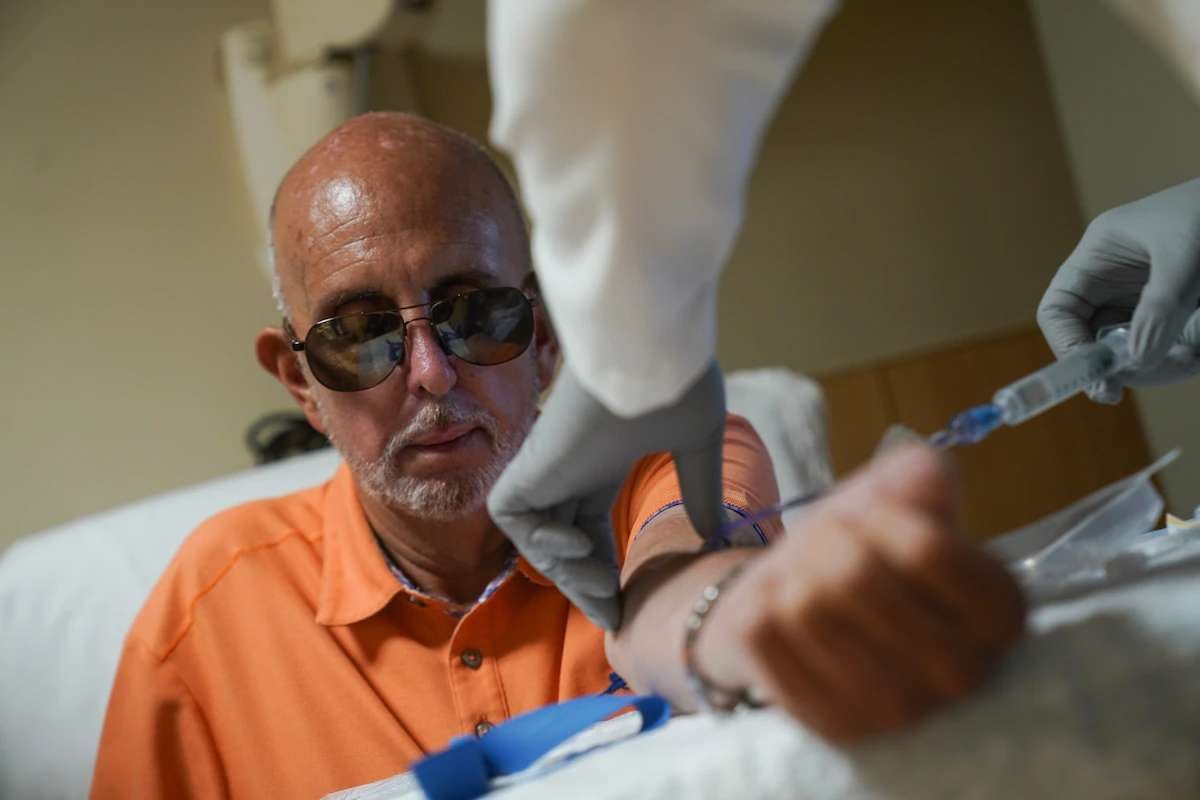Key Points:
- New drugs slow Alzheimer’s but have risks.
- Blood tests allow early detection.
- Lifestyle changes may help prevent it.
Recent medical advances in Alzheimer’s Treatments have offered patients with Alzheimer’s disease new reasons for optimism, with two breakthrough drugs and a simple blood test raising hopes of slowing or detecting the condition earlier. Yet experts caution that questions remain about safety, access, and whether a true cure is still far off.
Alzheimer’s accounts for about 70 percent of dementia cases globally and remains one of the leading causes of death among older adults. This year’s World Alzheimer’s Day, observed on Sunday, highlights both the progress and the uncertainty surrounding treatment and diagnosis.
Drugs Show Promise but Spark Debate
After decades of research and billions of dollars invested, two new Alzheimer’s Treatments, Eli Lilly’s donanemab and Biogen and Eisai’s lecanemab, sold under the brand name Leqembi, are the first medications proven to slow the progression of Alzheimer’s.
The drugs work best in the early stages of the disease and only provide modest benefits. They also carry significant risks, including brain swelling and potentially fatal hemorrhages. That trade-off has prompted debate over whether the treatments’ benefits outweigh their dangers.
The United States and several other countries have approved lecanemab, while regulators in France and the United Kingdom declined to cover the cost of the drug, citing insufficient benefit compared to their high price. The disagreement underscores the global divide over how to balance patient hope with economic and medical realities.
New Blood Test Raises Hopes for Early Detection
Traditionally, diagnosing Alzheimer’s for Alzheimer’s Treatments has required invasive lumbar punctures or costly brain scans, limiting access for many patients. A newly developed blood test that identifies biomarkers of the disease could change that equation.
The test received authorization in the United States in May, making it the first widely accessible tool of its kind. In Britain, researchers have launched national clinical trials, while European regulators have yet to give full approval.
Experts disagree on whether biomarkers alone are enough for a diagnosis. The U.S.-based Alzheimer’s Association recently updated its guidelines to say they are sufficient, but many European specialists insist a full clinical evaluation is necessary. Some patients with abnormal biomarkers never develop dementia, which complicates the debate.
The potential of pairing early diagnosis with early-stage drug treatment has fueled optimism, but neurologists warn that the link between testing and treatment is not yet conclusive.
Prevention Efforts Offer Incremental Gains
While Alzheimer’s Treatments and diagnostics draw headlines, researchers continue to examine how lifestyle factors contribute to Alzheimer’s risk. Nearly half of cases are associated with modifiable conditions such as obesity, smoking, drinking, lack of exercise, and untreated hearing loss, according to a Lancet review.
Trials targeting healthier lifestyles have shown only limited effects on slowing cognitive decline, though some evidence suggests small gains. A recent JAMA study found that Alzheimer’s patients who received two years of intensive support to improve diet and physical activity experienced a slightly slower decline than those who did not.
Experts caution that longer studies—spanning a decade or more—are needed to measure whether preventive strategies can truly alter the course of the disease.
Despite modest results, specialists say the shift toward prevention and early detection represents meaningful progress compared with just a few years ago. “It may not look like much,” said French epidemiologist Cecilia Samieri at a recent conference, “but it’s already huge.”
Visit The Lifesciences Magazine For The Most Recent Information.







